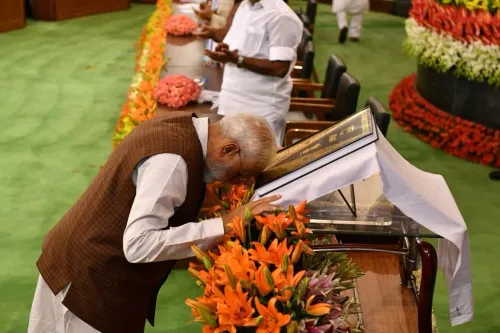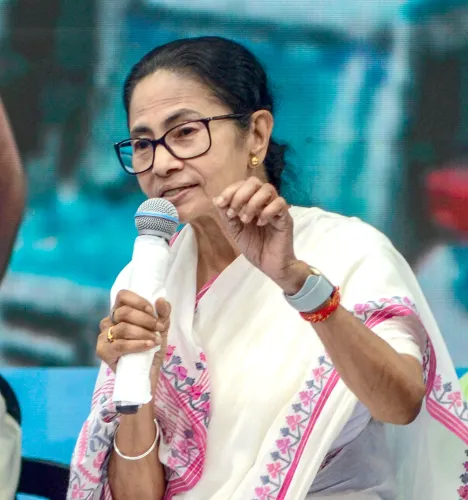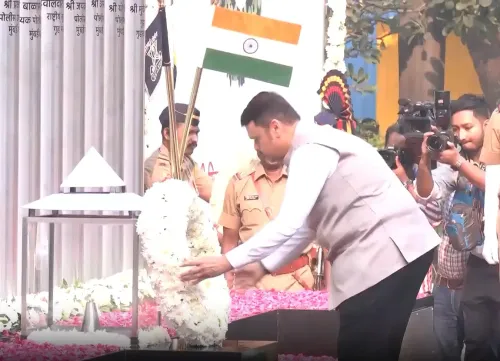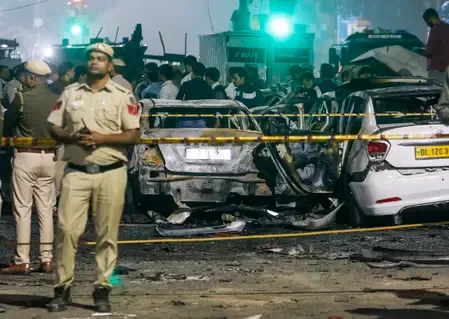Did Bhupendra Patel Pay Tributes to Ambedkar on Constitution Day?
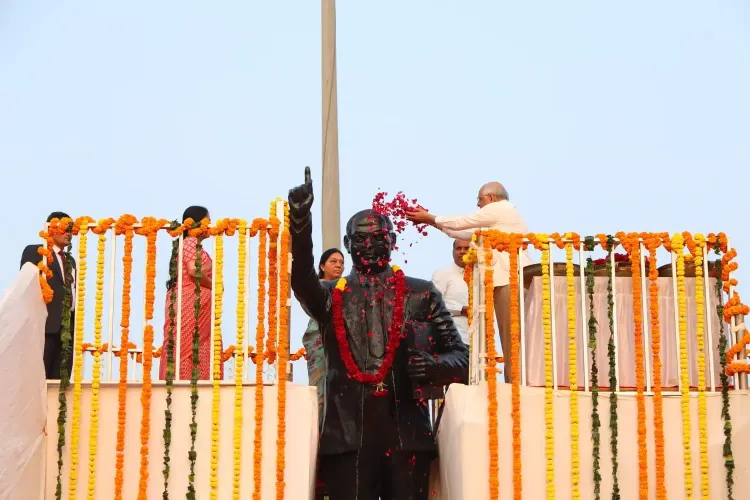
Synopsis
Key Takeaways
- Constitution Day is a reminder of India's democratic values.
- Tributes to Dr. B.R. Ambedkar highlight the importance of social justice.
- Citizens are encouraged to reflect on their responsibilities.
- Awareness programs enhance understanding of constitutional rights.
- The Constitution was drafted by a diverse group of leaders.
Ahmedabad, Nov 26 (NationPress) The Chief Minister of Gujarat, Bhupendra Patel, offered floral tributes to Dr Bhim Rao Ambedkar in Gandhinagar as part of the Constitution Day celebrations.
At the Central Vista Garden located in the state capital, the Chief Minister paid respect at the statue of the architect behind the Indian Constitution, acknowledging Dr Ambedkar's significant contributions towards equality, justice, and democratic principles.
Joining him were Gandhinagar Mayor Meena Patel, MLA Rita Patel, city BJP president Ashish Dave, along with officials from the Gandhinagar Municipal Corporation and district administration, among others, who were present for the event.
Since 2015, inspired by Prime Minister Narendra Modi, India has commemorated November 26 as Constitution Day.
This day is observed nationwide with the reading of the Preamble, reaffirming the commitment to the principles embedded in the Constitution.
Constitution Day, which falls on November 26, marks the ratification of the Indian Constitution in 1949, serving as a reminder of the fundamental principles that guide the nation - justice, liberty, equality, and fraternity.
This day honors Dr Ambedkar and strengthens citizens' dedication to democratic values.
It is celebrated throughout India via reading the Preamble, conducting awareness programs, and events that emphasize the importance of constitutional rights and responsibilities, making it a crucial occasion to contemplate India’s democratic foundation and the duties it imposes on every citizen.
The Indian Constitution was crafted by the Constituent Assembly, a group of distinguished leaders, jurists, and thinkers who commenced their work on December 9, 1946.
Under the leadership of Dr Ambedkar, the Chairman of the Drafting Committee, the Assembly convened 11 sessions over nearly three years, discussing every clause and formulating a framework that harmonized India's diversity with its democratic ambitions.
Reflecting India's social realities, the Assembly developed a document that guaranteed fundamental rights, established the governmental structure, and articulated principles for justice and equality.
The final version was adopted on November 26, 1949, marking the start of India's journey as a sovereign, democratic republic.

